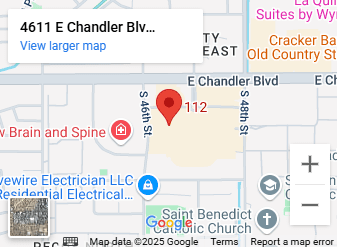Sell My Business: How to Find Top Business Brokers Near You for a Successful Sale
Are you planning to sell your business but overwhelmed by the search for business broker services near me that truly deliver results? Selling a company involves high stakes—from accurate valuation to confidential marketing—and partnering with an expert broker can be the difference between a stalled deal and a successful exit. In this guide, you’ll learn what business brokers do, how to identify local experts, the step-by-step sale process, financing considerations like SBA loans, advantages of brokerage support, and the regional strengths of B3 Business Brokers in Arizona and the Southeast US.
What Does a Business Broker Do When You Sell Your Company?
A business broker acts as an intermediary who coordinates valuation, marketing, buyer vetting, negotiation, due diligence and closing to streamline your exit strategy. By managing these stages, brokers reduce risk and preserve confidentiality—ensuring your company’s value is highlighted to qualified buyers.
What Are the Key Services Provided by Business Brokers?
Business brokers deliver core services that turn listings into completed sales:
- Business valuation and financial analysis to establish a competitive asking price.
- Confidential marketing through targeted channels, including industry networks and discreet listings.
- Buyer qualification, ensuring prospects have the financial capacity and industry fit.
- Negotiation support to secure favorable terms and navigate complex deal structures.
- Coordination of due diligence, reviews of legal documents, and closing logistics.
These services create a seamless pathway from listing to closing, preparing you for the next phase of your entrepreneurial journey.
How Do Business Brokers Help Maximize Your Business Sale Value?
Business brokers leverage industry data and negotiation expertise to bolster sale price and deal terms. They identify value drivers—such as recurring revenue streams or proprietary assets—and package these highlights into persuasive buyer presentations. This strategic positioning often yields offers above market averages and accelerates deal timelines by focusing negotiations on high-value elements.
How Do I Find the Best Local Business Brokers Near Me?
Identifying a top local broker combines research with targeted questions to pinpoint regional expertise and proven results. Focus on video testimonials and credentials.
What Should I Look for When Choosing a Business Broker?
Evaluate brokers on credentials, experience, and specialization:
- Certified Business Intermediary (CBI) designation or membership in the International Business Brokers Association.
- A track record of closed transactions similar in size and industry to your business.
- Transparent processes, client testimonials, and clear communication protocols.
Selecting a broker with these attributes ensures you partner with a qualified intermediary focused on your success.
Comparison of Main Street vs. Middle Market Business Brokers
| Business Size | Focus Area | Typical Deal Range | Service Depth | Ideal For |
|---|---|---|---|---|
| Main Street (<$5 M) | Local buyers, SBA loans | $250K–$5 M | Fundamental valuation, broad marketing | Small retail, services |
| Middle Market ($5–50 M) | Strategic acquisitions | $5 M–$50 M | Detailed financial modeling, private equity outreach | Manufacturing, tech firms |
Choosing the right broker type aligns resources with your transaction requirements and buyer pool.
How Does Local Market Expertise Impact Selling Your Business?
Local market knowledge ensures accurate valuation benchmarks and targeted buyer outreach. Brokers familiar with Arizona or the Southeast US can tap regional buyer networks, understand state-specific regulations, and position your business against nearby comparables—accelerating interest and closing timelines.
Which Questions Should I Ask Potential Business Brokers?
- What is your average time to close a transaction?
- Can you share anonymized case studies or references?
- How will you maintain confidentiality during marketing?
- What Are the Essential Steps in the Business Selling Process?
Selling a business follows a sequence of preparation, valuation, marketing, negotiation and closing. Understanding each phase helps you collaborate effectively with your broker and anticipate buyer requirements.
How Is My Business Valued Before Selling?
Business valuation combines quantitative analysis and market comparisons to determine fair market value. Valuation methods include asset-based, income-based and market-based approaches—each revealing unique insights about your company’s worth.
Business Valuation Methods: Asset-Based, Income-Based, and Market-Based Explained
| Approach | Basis | Key Metric |
|---|---|---|
| Asset-Based | Net asset value after liabilities | Book value of all assets |
| Income-Based | Discounted cash flow projections | Present value of future earnings |
| Market-Based | Comparable sales and multiples | Revenue or EBITDA multiples |
Research and Application of Company Valuation Methods
Academic research categorizes common business valuation methods into groups such as balance sheet-based (asset-based), income statement-based (income-based, like discounted cash flow), and market-based (relative valuation, using comparable sales or multiples). These methodologies offer different perspectives on a company’s worth and are applied based on the company’s current position and development stage.
This citation verifies the different business valuation methods (asset-based, income-based, market-based) discussed in the article, providing academic backing for their application.
Applying these methods together delivers a robust valuation that informs asking price and negotiation strategy, guiding us to preparation best practices.
What Does Preparing My Business for Sale Involve?
Preparation covers financial organization, operational streamlining and due diligence readiness:
- Audit financial statements for accuracy and consistency.
- Document standard operating procedures, contracts and customer databases.
- Address legal, environmental and compliance issues.
- Enhance curb appeal of physical locations or digital assets.
Due Diligence Checklist for Sellers: What to Prepare Before Listing
- Three years of audited or reviewed financial statements.
- Tax returns and legal agreements (leases, vendor contracts).
- Employee and customer contracts, IP registrations.
- Inventory listings and equipment valuations.
How Do Brokers Market My Business Confidentially?
Brokers employ blind profiles, NDA-protected discussions and targeted outreach to anonymous buyer pools. They spotlight financial highlights without revealing identifiable details, ensuring competitors and staff remain uninformed until a qualified buyer emerges.
What Happens During Negotiation and Closing?
Negotiation centers on price, deal structure and transition terms. Once a letter of intent is signed, due diligence commences, final agreements are drafted and financing is confirmed. Closing coordinates fund transfers, asset transfers and post-closing support, culminating your successful exit.
How Can Financing Options Like SBA Loans Affect Selling My Business?
Government-backed SBA loans expand the pool of qualified buyers and can boost sale value by offering favorable financing terms. Brokers guide both sellers and buyers through loan application nuances to smooth transaction flow.
What Are SBA Loans and How Do They Support Business Sales?
SBA loans are government-guaranteed financing options that reduce lender risk and provide buyers with up to 90% loan coverage. These loans enable main street business buyers to secure funding for business acquisitions, often at lower down payments and competitive interest rates.
SBA Loan Types: 7(a) vs. 504 and Their Impact on Business Sales
| Loan Program | Purpose | Loan Size | Ideal Use Case |
|---|---|---|---|
| 7(a) | General business financing | Up to $5 M | Acquisition, working capital |
| 504 | Fixed asset purchases | Up to $5.5 M | Real estate, large equipment |
This clarity lets brokers tailor transaction timelines and documentation to each loan’s requirements.
How Do Business Brokers Assist With SBA Financing?
Brokers prepare financial packages, coordinate with lenders, and advise on SBA eligibility criteria. They liaise between buyer and lender to expedite approvals and ensure documentation meets SBA standards, reducing financing delays.
What Other Seller Financing Options Are Available?
Beyond SBA options, sellers can offer earn-outs, vendor take-back loans or structured seller notes. These alternatives bridge valuation gaps, incentivize buyer performance and can close funding shortfalls when traditional lending falls short.
Discover How Top Business Brokers Can Facilitate a Successful Sale
Enlisting a broker provides expertise, market reach and negotiation skills—leading to higher sale values, faster closings and reduced stress compared to a DIY approach.
What Are the Benefits of Using a Business Broker?
Brokers offer:
- Access to extensive buyer networks and industry contacts.
- Professional valuation and marketing tools to highlight key value drivers.
- Negotiation expertise that secures optimal deal terms.
- Confidentiality frameworks that protect your business reputation.
The Value Proposition of Business Brokers in Sales Transactions
Engaging a business broker offers significant advantages, including professional valuation, strategic marketing, access to a wider network of qualified buyers, and expert negotiation skills. Their involvement is widely recognized to streamline the sales process, enhance confidentiality, and ultimately lead to a more favorable sale price and improved closing rates for sellers.
This citation supports the article’s claims regarding the comprehensive benefits of utilizing a business broker, including their ability to maximize sale value, ensure confidentiality, and facilitate a more efficient and successful transaction.
How Much More Can I Expect to Get Using a Broker?
Businesses sold with professional brokerage services often achieve sale prices 10 %–20 % above those sold independently. Expert valuation and targeted buyer outreach enhance perceived value and bidding competition.
How Long Does It Typically Take to Sell a Business With a Broker?
The average time to close a sale ranges from 6 to 12 months for small businesses, with larger or more complex transactions extending to 18 months. Broker-led processes streamline timelines through coordinated marketing and due diligence management.
What Local Business Broker Expertise Does B3 Business Brokers Offer?
B3 Business Brokers combines deep regional knowledge in Arizona and the Southeast US with a client-centric approach—ensuring personalized guidance, strategic marketing and hands-on negotiation support.
How Does B3 Business Brokers Support Sellers in Arizona?
In Arizona, our team leverages local buyer networks and state-specific market data to position your business competitively. We’ve closed deals across Phoenix by aligning valuation strategies with regional benchmarks.
Can B3 Help With Selling Different Types of Businesses?
Whether you operate a restaurant, manufacturing firm or professional services practice, B3’s industry-agnostic expertise adapts proven methodologies—valuing unique assets and matching them to buyers seeking niche acquisitions.

What Are Common Questions About Selling My Business to Top Brokers?
Understanding typical seller concerns helps you prepare for smooth collaboration and anticipate process milestones.
How Do Business Brokers Qualify Potential Buyers?
Brokers verify buyer credentials through financial pre-screens, background checks and proof‐of‐funds documentation—ensuring only serious, qualified buyers gain access to sensitive business information.
What Documents Are Needed to Sell My Business?
Key documents include financial statements, tax returns, leases, vendor contracts, employee agreements and any intellectual property registrations. Having these in order accelerates due diligence and builds buyer confidence.
How Is Confidentiality Maintained During the Sale?
Confidentiality is preserved through blind marketing profiles, enforceable non-disclosure agreements and limiting sensitive data to vetted buyers—protecting your staff, customers and operations from disruption.




